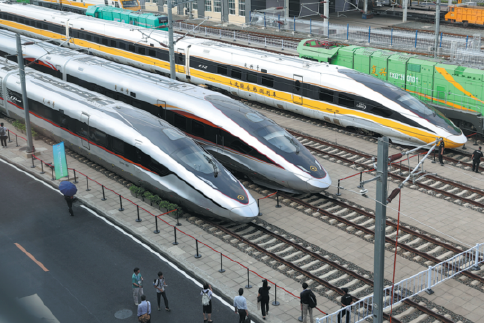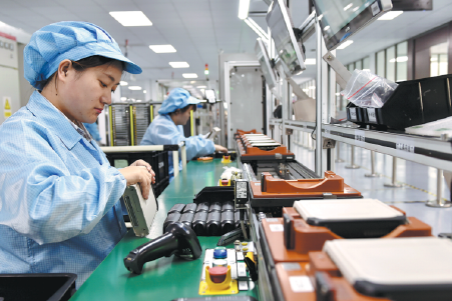Smart cities to bring smart solutions


Tech advances to improve lives, offer faster commutes, clean air, reduce crime
Smart cities promise to bring better lives, faster commutes, cleaner air and lower crime, all through the intelligent use of connected technology, said experts, and after huge investment in the sector, China is leading the way.
"China's smart cities market is projected to increase about 30 percent year-on-year in 2018, and all the provincial and sub-provincial cities have launched development and construction for smart cities, with more to follow suit," said Pierpaolo Franco, managing director of London-based Royal Institution of Chartered Surveyors, Greater China.
In 2011, smart city initiatives were included in China's 12th Five-Year (2011-15) Plan. Just a year later, the first pilot projects were launched.
Since then, more than 500 Chinese cities have pursued smart city development, investing a total of 1 trillion yuan ($145 billion), according to a report by Shenzhen-based ASKCI Consulting Co Ltd.
The market will hit 7.9 trillion yuan this year, is expected to grow by 33 percent annually, and by 2022 will top 25 trillion yuan, according to ocn.com.cn, a Shenzhen-based consulting platform.
In smart cities, big data is collected with sensors and analyzed for ways to manage resources more efficiently. This has been estimated as a $3 trillion global business market over the next 20 years, according to a report by RICS earlier this year.
While the principle of using technology to create more efficient systems stays the same, cities adapt the focus: some focus on technology development, others energy conservation, or green city concepts.
"Although most cities have started a smart city project, there is no globally unified thinking on the concept and operation of smart cities," said Franco.
Last year, China's Ministry of Science and Technology identified four tech companies, Baidu Inc, Alibaba Group Holdings Ltd, Tencent Holdings Ltd, and iFlyTek, to become a "national team" and boost the development of AI technology in the country.
Alibaba is now involved in dozens of pilot projects across China, with its open AI platform Tianqing for the ET City Brain system officially launched in September.
Set up by its cloud computing subsidiary, the Brain looks to make the city "think" through AI and cloud computing technologies, and help optimize public services in real time.
"There is abundant data in our cities, but the important data is not fully analyzed and used, and it is just idling there," said Hua Xiansheng, head of the AI center at Alibaba Cloud, and vice-president of Alibaba Group.
One place the Brain has been deployed is Hangzhou, capital of Zhejiang province. Once notorious for its traffic jams and urban congestion, the Brain has been helping traffic to flow more efficiently.
Since introducing the technology, Hangzhou's traffic congestion has fallen from the fifth-worst in China in 2016, all the way to 57th place this year, according to online mapping firm Gaode Map. Average rush hour speeds have also increased, from 20.7 kilometers per hour in 2012, to 24.15 kilometers per hour presently.
Thanks to smart city solutions, Suzhou in Jiangsu province can predict its traffic flow within the next hour to an accuracy of more than 94 percent.
"Currently, our experiments are mostly for government use, but we truly expect our open AI platform to enter more areas and help citizens live, work and entertain better," said Hua.
Research firm McKinsey Global Institute agrees. In its recent report Smart cities: Digital solutions for a more livable future, they find that cities can use smart technologies to improve some key quality-of-life indicators by 10 to 30 percent - numbers that translate into lives saved, fewer crime incidents, shorter commutes, a reduced health burden, and carbon emissions averted.
"A smart city not only requires innovative technologies like AI, big data, cloud computing and the internet of things, but also needs global standards to guide and assess the building of smart cities. The ultimate goal is not to build a completely intelligent city but to create a comfortable, healthy, safe and happy living and working environment for the urban population through the adoption of advanced technologies," added Franco.




































